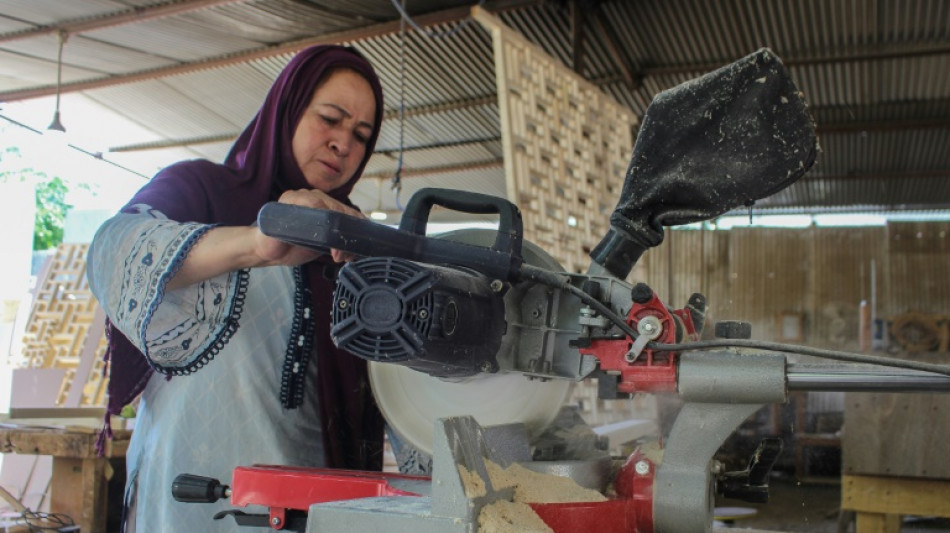
-
 Emotional Marquez in tears after winning seventh MotoGP title
Emotional Marquez in tears after winning seventh MotoGP title
-
Emotional Marquez win seventh MotoGP world championship

-
 Russia pounds Ukraine with 'hundreds' of drones and missiles: Kyiv
Russia pounds Ukraine with 'hundreds' of drones and missiles: Kyiv
-
Wallabies record-holder Slipper hints Perth could be final Test

-
 Son brace fuels LAFC as Messi frustrated in Miami draw
Son brace fuels LAFC as Messi frustrated in Miami draw
-
US actress-singer Selena Gomez weds music producer Benny Blanco

-
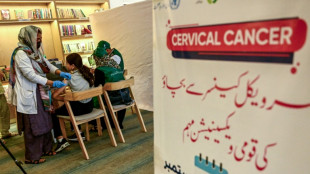 Pakistani parents rebuff HPV vaccine over infertility fears
Pakistani parents rebuff HPV vaccine over infertility fears
-
Women's cricket set for 'seismic' breakthrough at World Cup
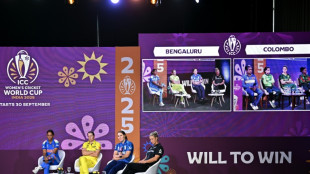
-
 New Zealand fly-half Barrett out of Australia rematch
New Zealand fly-half Barrett out of Australia rematch
-
Moldovans torn between pro-EU and pro-Russia vote in tense polls
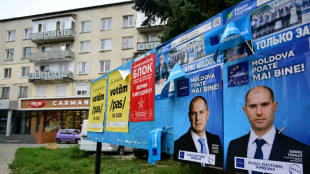
-
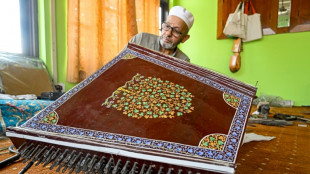 Strings of identity: Kashmir's fading music endures
Strings of identity: Kashmir's fading music endures
-
'Clog the toilet' trolls hit Indian visa holders rushing to US

-
 Bradley: USA Ryder Cup disaster part of why crowds angry
Bradley: USA Ryder Cup disaster part of why crowds angry
-
Europe used 'anti-fragile mentality' to cope with Cup hecklers

-
 Unbeaten McIlroy faces winless Scheffler in Ryder Cup singles
Unbeaten McIlroy faces winless Scheffler in Ryder Cup singles
-
Sweeping UN sanctions return to hit Iran after nuclear talks fail
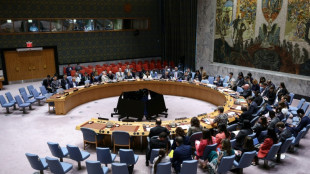
-
 Messi, Miami frustrated in Toronto stalemate
Messi, Miami frustrated in Toronto stalemate
-
Argentina protesters march for victims of live-streamed femicide

-
 Europe shrugs off intense abuse to reach brink of Ryder Cup win
Europe shrugs off intense abuse to reach brink of Ryder Cup win
-
Injury-hit PSG reclaim Ligue 1 top spot ahead of Barcelona clash

-
 Understrength PSG reclaim Ligue 1 top spot ahead of Barcelona clash
Understrength PSG reclaim Ligue 1 top spot ahead of Barcelona clash
-
Argentina protesters seek justice for victims of live-streamed femicide
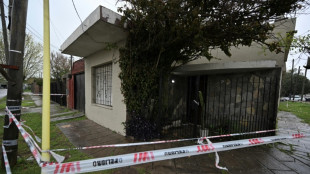
-
 Palhinha rescues point for Tottenham against winless Wolves
Palhinha rescues point for Tottenham against winless Wolves
-
Springbok Feinberg-Mngomezulu an 'incredible talent' - Erasmus

-
 Mitchell backs England to sustain dominance after World Cup triumph
Mitchell backs England to sustain dominance after World Cup triumph
-
Zaporizhzhia nuclear plant off grid; Russia, Ukraine trade blame
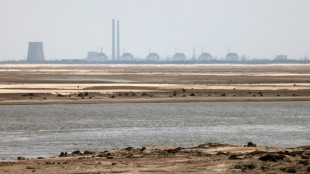
-
 McIlroy fires back at hecklers in intense Ryder Cup atmosphere
McIlroy fires back at hecklers in intense Ryder Cup atmosphere
-
Two women die trying to cross Channel from France

-
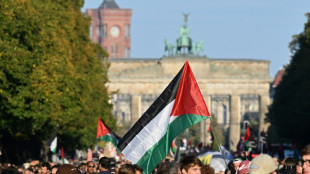 Huge Berlin protest urges end to Gaza war
Huge Berlin protest urges end to Gaza war
-
Liverpool 'deserved' defeat to Crystal Palace, says Slot

-
 Bottega Veneta shows off 'soft functionality' in Milan
Bottega Veneta shows off 'soft functionality' in Milan
-
Maresca blasts careless Chelsea after Brighton defeat

-
 Juve miss out on Serie A summmit with Atalanta draw
Juve miss out on Serie A summmit with Atalanta draw
-
Guardiola salutes dynamic Doku as Man City run riot

-
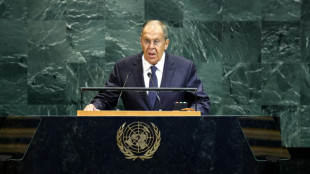 Russia warns West as Ukraine secures Patriot defenses
Russia warns West as Ukraine secures Patriot defenses
-
Ten-man Monaco miss chance to retake top spot in Ligue 1

-
 Feinberg-Mngomezulu scores 37 points as Springboks top table
Feinberg-Mngomezulu scores 37 points as Springboks top table
-
Trump authorizes 'full force' troop deployment in Portland

-
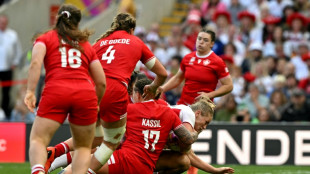 Matthews at the double as England beat Canada to win Women's Rugby World Cup
Matthews at the double as England beat Canada to win Women's Rugby World Cup
-
Real Madrid 'hurting', deserved to lose derby: Alonso

-
 Handshake spat bad for cricket, says Pakistan captain ahead of India final
Handshake spat bad for cricket, says Pakistan captain ahead of India final
-
England beat Canada in Women's Rugby World Cup final

-
 Hezbollah says it refuses to be disarmed one year after leader's killing
Hezbollah says it refuses to be disarmed one year after leader's killing
-
Atletico thrash Liga leaders Real Madrid in gripping derby

-
 Liverpool's perfect start ended by Crystal Palace, Man Utd beaten at Brentford
Liverpool's perfect start ended by Crystal Palace, Man Utd beaten at Brentford
-
Unbeaten Rahm sparks Europe to historic five-point Ryder Cup lead

-
 Dortmund keep heat on Bayern with Mainz win
Dortmund keep heat on Bayern with Mainz win
-
Under-fire Amorim accepts criticism as Man Utd crash at Brentford

-
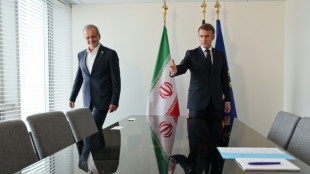 Sweeping UN sanctions loom for Iran after nuclear talks fail
Sweeping UN sanctions loom for Iran after nuclear talks fail
-
Canadian Vallieres pulls off cycling world title surprise in Kigali hills
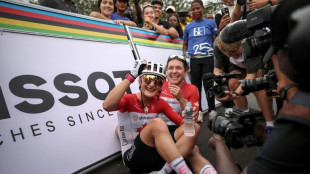

In a Pakistan valley, a small revolution among women
In a sawdust-filled workshop nestled in the Karakoram Mountains, a team of women carpenters chisel away at cabinets -- and forge an unlikely career for themselves in Pakistan.
Women make up just a fraction of Pakistan's formal workforce. But in a collection of villages sprinkled along the old Silk Road between China and Afghanistan, a group of women-led businesses is defying expectations.
"We have 22 employees and have trained around 100 women," said Bibi Amina, who launched her carpentry workshop in 2008 at the age of 30.
Hunza Valley's population of around 50,000, spread across mountains abounding with apricot, cherry, walnut and mulberry orchards, follow the Ismaili branch of Shiite Islam.
Ismailis are led by the Aga Khan, a hereditary position held by a family with Pakistani roots now living in Europe.
The family opened agirls' school in Hunza in 1946, kickstarting an educational investment that pushed the valley's literacy rate to 97 percent for both men and women. That rate far outstrips the country average of around 68 percent for men and 52.8 percent for women.
As a result, attitudes have shifted, and women like Amina are taking expanded roles.
"People thought women were there to wash dishes and do laundry," Amina said of the generation before her.
Trained by the Aga Khan Foundation to help renovate the ancient Altit Fort, Amina later used her skills to start her own business. Her carpenters are currently at work on a commission from a luxury hotel.
- Pioneers -
Only 23 percent of the women in Pakistan were officially part of the labour force as of 2024, according to data from the World Bank.
In rural areas, women rarely take on formal employment but often toil in the fields to support the family's farming income.
In a Gallup poll published last year, a third of women respondents said their father or husband forbade them from taking a job, while 43.5 percent said they had given up work to devote themselves to domestic tasks.
Cafe owner Lal Shehzadi spearheaded women's restaurant entrepreneurship in Hunza.
She opened her cafe at the top of a winding high street to supplement her husband's small army pension.
Sixteen years later, her simple set-up overlooking the valley has become a popular night-time tourist attraction. She serves visitors traditional cuisine, including yak meat, apricot oil and rich mountain cheese.
"At the start, I used to work alone," she said. "Now, 11 people work here and most of them are women. And my children are also working here."
Following in Shehzadi's footsteps, Safina quit her job to start her own restaurant around a decade ago.
"No one wanted to help me," she said. Eventually, she convinced family members to sell two cows and a few goats for the money she needed to launch her business.
Now, she earns the equivalent of around $170 a month, more than 15 times her previous income.
- Farming to football -
The socio-economic progress of women in Hunza compared to other rural areas of Pakistan has been driven by three factors, according to Sultan Madan, the head of the Karakoram Area Development Organisation and a local historian.
"The main reason is the very high literacy rate," he told AFP, largely crediting the Aga Khan Foundation for funding training programmes for women.
"Secondly, agriculture was the backbone of the economy in the region, but in Hunza the landholding was meagre and that was why women had to work in other sectors."
Women's increased economic participation has spilled into other areas of life, like sports fields.
"Every village in the valley has a women's soccer team: Gojal, Gulmit, Passu, Khyber, Shimsal," said Nadia Shams, 17.
On a synthetic pitch, she trains with her teammates in jogging pants or shorts, forbidden elsewhere by Pakistan's dress code.
Here, one name is on everyone's lips: Malika-e-Noor, the former vice-captain of the national team who scored the winning penalty against the Maldives in the 2010 South Asian Women's Football Championship.
Fahima Qayyum was six years old when she witnessed the killer kick.
Today, after several international matches, she is recruiting the next generation.
"As a girl, I stress to others the importance of playing, as sport is very good for health," she told AFP.
"If they play well, they can also get scholarships."
C.Stoecklin--VB

